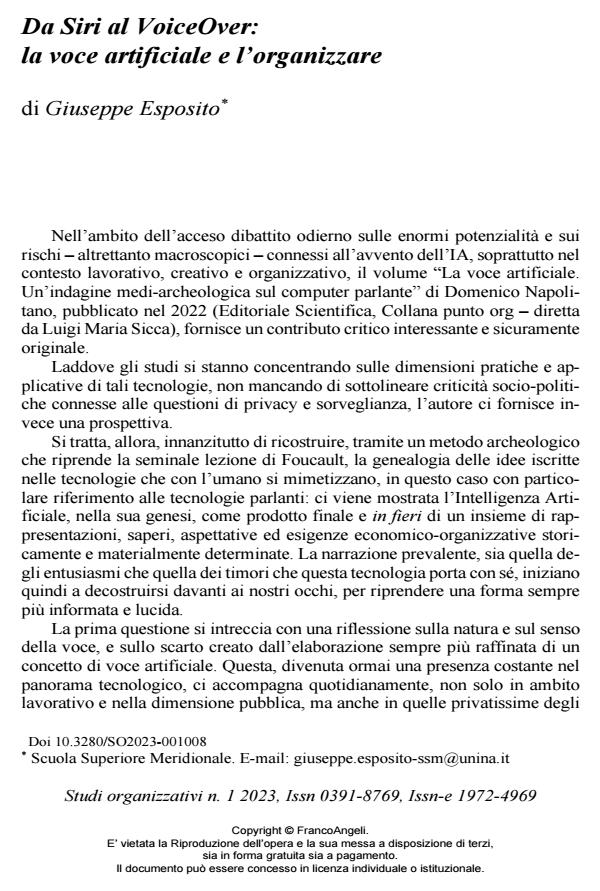Da Siri al VoiceOver: la voce artificiale e l’organizzare
Journal title STUDI ORGANIZZATIVI
Author/s Giuseppe Esposito
Publishing Year 2023 Issue 2023/1
Language Italian Pages 5 P. 174-178 File size 130 KB
DOI 10.3280/SO2023-001008
DOI is like a bar code for intellectual property: to have more infomation
click here
Below, you can see the article first page
If you want to buy this article in PDF format, you can do it, following the instructions to buy download credits

FrancoAngeli is member of Publishers International Linking Association, Inc (PILA), a not-for-profit association which run the CrossRef service enabling links to and from online scholarly content.
Giuseppe Esposito, Da Siri al VoiceOver: la voce artificiale e l’organizzare in "STUDI ORGANIZZATIVI " 1/2023, pp 174-178, DOI: 10.3280/SO2023-001008